Increase in children with measles, hospitalized with complications
With a worried face when seeing her child coughing continuously, Ms. VTP (mother of 7-month-old VAK, residing in Hoang Mai, Hanoi ), gently cupped her hands and followed the nurse's instructions, continuously patting her child's back to help him feel better. Baby K was hospitalized with a diagnosis of severe pneumonia complications due to measles.
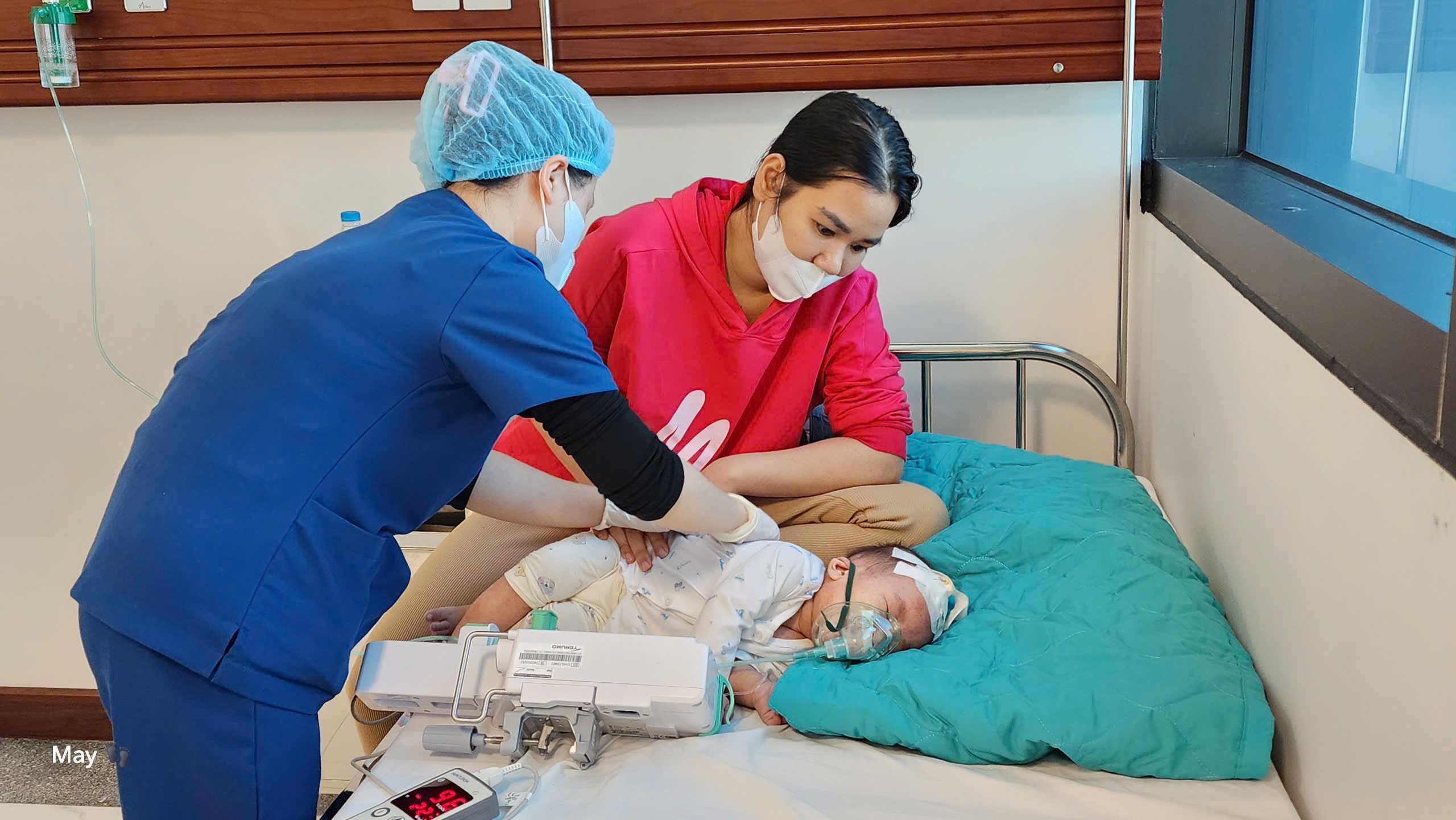
Baby K was hospitalized due to complications of pneumonia caused by measles. (Photo: HV)
Ms. P said: "A week ago, my child was treated for pneumonia at Bach Mai Hospital. But after returning home for a few days, he again had symptoms of high fever, cough and difficulty breathing. After taking him to the doctor, the doctor concluded that he had recurrent pneumonia due to complications from measles." Baby K is one of the seriously ill children with measles and pneumonia complications before reaching the age of vaccination, being treated at Hanoi Children's Hospital.
In the same room, VLHT, a 3-month-old baby (Thanh Tri, Hanoi), also had continuous coughing fits, making his mother extremely worried. Ms. LTH, T's mother, said that before that, her child was treated at the National Children's Hospital because of lymph nodes in the armpit, but she did not expect to be infected with measles from the community. "My child is not old enough to get the measles vaccine, so he is very susceptible to the disease. When I saw my child had a rash and fever, I immediately took him to the hospital. The disease progressed very quickly, and after only a few days, my child had pneumonia," Ms. H shared.
Meanwhile, baby NHA, 2 years old (Phuong Mai, Hanoi) lies asleep in her mother's arms. Baby A was hospitalized 5 days ago after having a high fever and a rash all over her body. The patient's mother, Ms. HTH, shared: "The family subjectively did not vaccinate the child because they thought the child had measles before, but they did not expect the disease to be more serious this time and there were complications. When she was hospitalized, the rash had spread all over her body. Fortunately, after treatment, the child's condition gradually stabilized. If nothing changes, the doctor said the child can be discharged soon."
Over the past three months, the number of measles cases has increased significantly across the country. In Hanoi, more than 200 cases of measles have been recorded, of which Hanoi Children's Hospital has received more than 40 cases since it officially opened in early October. Dr. Do Thi Thuy Nga, Deputy Director of Hanoi Children's Hospital, said: "About 30% of hospitalized children are in serious condition, requiring oxygen or mechanical ventilation. In particular, children under 1 year old account for more than 40% of cases, many of whom are not yet old enough to be vaccinated. In addition, the hospital has also recorded a number of cases in children over 5 years old, but this number is not significant."
According to experts, the measles outbreak in 2024 is the result of the natural epidemic cycle combined with low vaccination rates. More than 90% of hospitalized children were unvaccinated or incompletely vaccinated. The period of social isolation during the Covid-19 pandemic caused many children to miss important vaccinations, and parents were not vigilant about the booster vaccination schedule. This led to an increase in cases, especially in children under 9 months old - the group that is not yet old enough to be vaccinated.
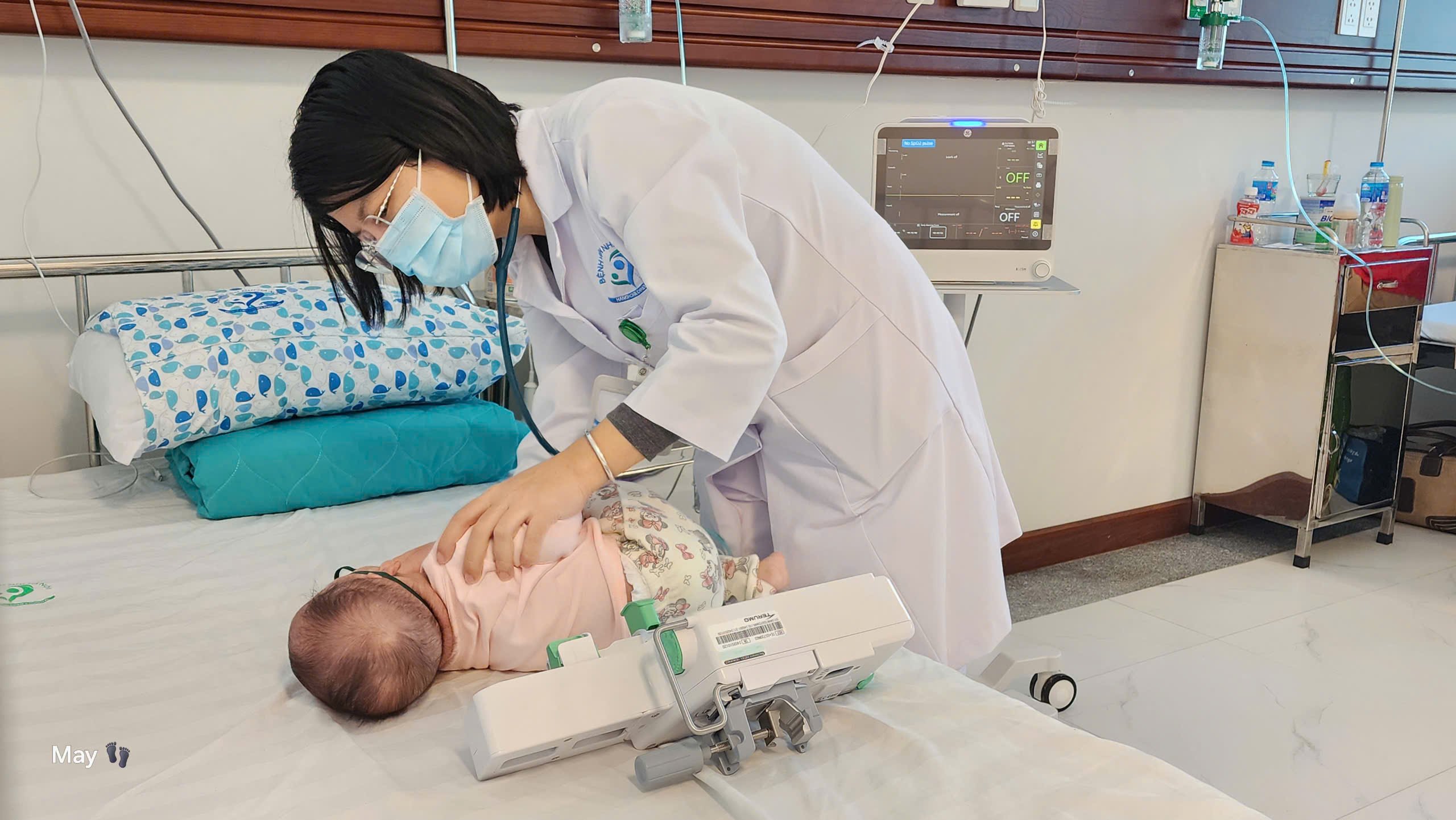
Dr. Do Thi Thuy Nga examines a child with measles and pneumonia complications. (Photo: HV).
What to do when measles "knocks on the door" during the epidemic season?
To control the epidemic, Dr. Nga emphasized the importance of following the measles vaccination schedule. Children from 9 months old need to get the first injection, the second injection at 15-18 months and the third injection when the child is 4-6 years old. For children at high risk or living in epidemic areas, doctors may consider giving the injection as early as 6 months old. Full vaccination not only protects the child personally but also helps reduce the risk of spreading in the community.
In addition, preventive measures such as boosting immunity, maintaining personal hygiene and closely monitoring children's health play an equally important role. Parents need to ensure that children eat nutritious food, keep their bodies warm during the cold season, wash their hands regularly and limit contact with crowds.
The changing of seasons not only increases the number of measles cases but also reflects the risk of outbreaks of many other infectious diseases. Health experts recommend that people should proactively focus on implementing preventive measures. In addition, when detecting unusual symptoms such as prolonged high fever, rash or difficulty breathing, families should take their children to the nearest medical facility for timely examination and treatment to avoid the risk of dangerous complications.
Source: https://www.baogiaothong.vn/ha-noi-nhieu-tre-nhiem-soi-duoi-9-thang-tuoi-bien-chung-viem-phoi-192241220081912769.htm


![[Photo] Prime Minister Pham Minh Chinh and Prime Minister of the Kingdom of Thailand Paetongtarn Shinawatra attend the Vietnam-Thailand Business Forum 2025](https://vphoto.vietnam.vn/thumb/1200x675/vietnam/resource/IMAGE/2025/5/16/1cdfce54d25c48a68ae6fb9204f2171a)





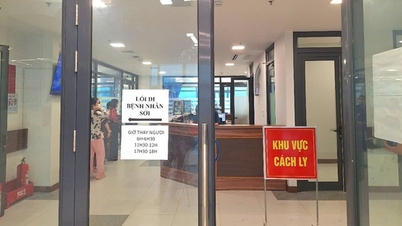







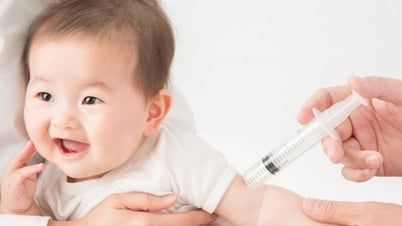


















![[Photo] President Luong Cuong receives Prime Minister of the Kingdom of Thailand Paetongtarn Shinawatra](https://vphoto.vietnam.vn/thumb/1200x675/vietnam/resource/IMAGE/2025/5/16/52c73b27198a4e12bd6a903d1c218846)














































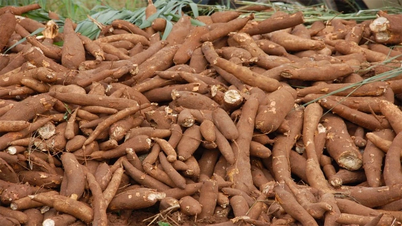
















Comment (0)